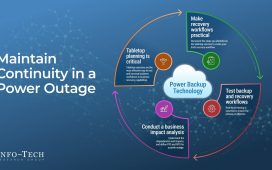Every great idea has its moment. Really great ideas—like hiring on the basis of skills rather than pedigree—might have two.
That’s what Ginni Rometty, former CEO of tech giant IBM and current chairman of upskilling initiative OneTen, told Fortune last week. Rometty, aside from being IBM’s first female CEO and a top-10 fixture on Fortune’s annual Most Powerful Women list, might be best-known for driving IBM toward a hiring plan that prioritizes skill level ahead of college education or job experience.
A decade ago, Rometty launched what she called the SkillsFirst initiative at IBM: an “overhaul [of] its hiring practices to create on-ramps for people who were previously overlooked—and to build a pipeline of capable non-degreed workers.” At the time, she referred to these jobs as “new collar jobs.” Today she thinks they’re better described as skills-first—and they’ve never been more front and center. That’s due to many factors, but chief among them are the increasing unaffordability of college, a volatile job market that often left companies scrambling to fill open roles, and a pandemic that gave both workers and executives alike a chance to sit and reconsider their primary needs.
We’ve seen two inflection points since she first coined “new collar,” Rometty told Fortune before she took the stage at the World Business Forum in New York. The first inflection point, she said, followed the murder of George Floyd in the summer of 2020, which set off a flurry of activism and renewed corporate commitments to equitable hiring and inclusion.
“It put the spotlight on systemic racism, and people wanted to do something productive about it,” Rometty recalled. “That would be: Give people better jobs for economic opportunity.” The demands for racial justice and equity in the workplace naturally helped catapult skills-first mentalities to becoming a movement more than just an idea, she added. (The same impetus guides OneTen, a coalition of CEOs whose stated aim is to “upskill, hire, and advance one million Black individuals who do not yet have a four-year degree into family-sustaining jobs with opportunities for advancement over the next 10 years.”)
Today, Rometty says, we’re at the second inflection point. Though skills-first hiring has by now decidedly cemented into more of a movement than an abstract idea, the trend is getting a seismic boost, she believes, thanks to the rapid advancements of generative AI.
With Gen AI, “everyone’s going to have to change their skills”
As machine-based learning and artificial intelligence like ChatGPT, Bard, and DALL-E ramps up at a breakneck speed—some say it’s moving faster than real life—humans need to hustle to keep pace.
“Now you’re entering a world where everyone’s going to have to change their skills, and people are afraid of what their jobs are going to look like,” Rometty said, echoing countless other executives’ predictions. That means skills-first hiring will be more democratizing than ever. “This is a moment when skills-first is not just about underrepresented groups. It’s become about everyone now.”
In Rometty’s ideal world, tech advancements elevate skills-first to being a talent strategy for everyone. “That’s what I saw at IBM. On one hand, I was working on new-collar jobs and I also had this massive workforce to reskill [on tech],” she recalled. “At some point, I went, ‘It’s the same thing. I’m motivating both people, and want to pay them, have transparency, career paths all on skill, not just on what their experience had been, or a credential.’”
That experience—upskilling both traditional white-collar workers as well as new workforce entrants—was a “lightbulb” moment for Rometty that skills-first talent strategy is genuinely for everyone. “I want to watch out that it doesn’t get recast as just a DEI initiative. It’s way more than that.”
Another reason skills-first is reaching a fever pitch today: People have less trust in the stability of any of their jobs or training to begin with (that also stems from the fear of AI taking over, plus the numerous layoffs that have swept the workplace). “You have this view, in my mind, of a very fragile balance with democracy,” Rometty said. “People believe in democracy when they believe it’s a system that gives them a better future. And right now, there’s a lot of people thinking that may not be true—and it’s related to skills.”
If the first inflection point three summers ago made skills-first hiring the “how” for elevating underrepresented groups, she said she hopes the current inflection point makes it the “how” for reframing education. Gen Z may be already there. Millions of them, even those currently enrolled in college, believe degrees are no longer necessary. “People will no longer look at it as one-and-done,” Rometty says. “You and I are going to have to go back and get new skills. Eventually, it will mean a lot of social change.”
College degrees certainly still carry value—especially in terms of lifetime earning potential—which Rometty acknowledges. “It’s always good to have more than less,” she said. But she’s “totally” on board with the idea of “the decaying value of a college degree, particularly when it pertains to companies [with] skills-based programs.”
When generative AI fully integrates into the workforce, it will put a premium on soft skills like collaboration, judgment, and critical thinking. These are what humans do best, and they’re often skills-built, not degrees-built, Rometty pointed out. “Those are where people can upskill [when] generative AI really redefines what skills are needed for any role—despite where you went to college or what expertise you have going into it.”








